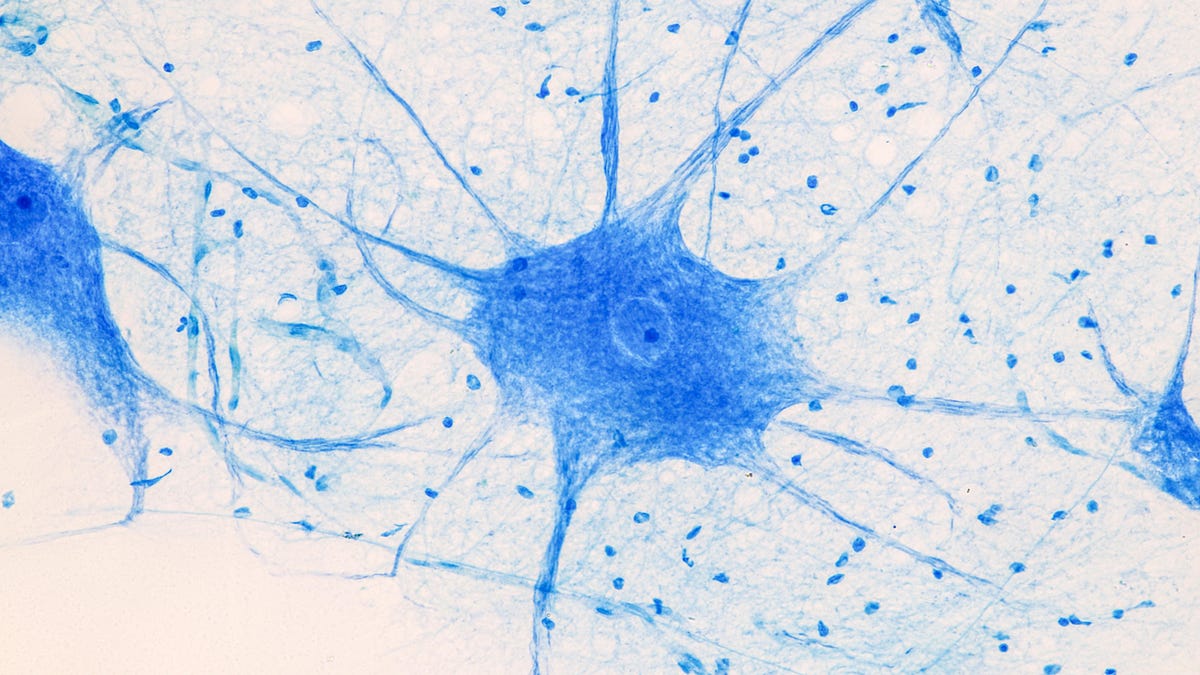
New research links the rare neurological condition Guillain-Barré syndrome to covid-19. The study tracked millions of people in Israel, finding that those with a recent history of covid-19 infection were noticeably more likely to develop Guillain-Barré than those without one. Conversely, covid-19 vaccination appeared to be associated with a reduced risk of later having it.
Guillain-Barré syndrome (GBS) is caused when the immune system mistakenly attacks the peripheral nervous system, the network of nerves that connect most everything else to the brain and spinal cord. This damage results in rapid muscle weakness and paralysis that can sometimes be life-threatening when it affects the muscles that control our breathing. Most people with GBS do fully recover, though it can take years for some, and about one-fifth of sufferers can be left with long-term symptoms. Musician Sufjan Stevens revealed last month that he had been receiving treatment for the syndrome.
Advertisement
The condition is incredibly rare, with only around 3,000 to 6,000 cases estimated to occur annually in the U.S. There are several risk factors for GBS, such as being over the age of 50, but the most common seems to be a recent infection. About two-thirds of cases are preceded by having a gastrointestinal or respiratory illness days or weeks earlier. Many germs are considered potential GBS triggers, including the Epstein-Barr virus, influenza, and the foodborne bacteria Campylobacter jejuni.
Advertisement
Given the recent emergence of a new viral disease with covid-19, the study authors wanted to know if the SARS-CoV-2 coronavirus should be added to this lengthy list.
Advertisement
“We wanted to study whether this new virus may lead to GBS like others before it, especially since it was our subjective impression that there is a rise in GBS cases in our everyday practice and we wanted to see whether there was an association or it was merely coincidental,” lead study author Haya Bishara, a neurologist at the Lady Davis Carmel Medical Center in Israel, told Gizmodo in an email.
GBS is thought to be sometimes a rare complication of certain vaccines as well, such as the flu vaccine, though this risk is generally lower than the risk associated with the target disease. So Bishara’s team also investigated any potential connection between the syndrome and the mRNA covid-19 vaccine developed by Pfizer and BioNTech.
Advertisement
The researchers used data from the largest healthcare provider in Israel to track the health of over 3 million people in the country with no previous history of GBS between January 2021 to June 2022. Seventy-six patients in total were newly diagnosed with GBS during that time, and the authors compared their recent medical history (six weeks back) to matched controls in the same population. This comparison revealed a clear pattern in terms of both covid-19 infection and vaccination.
“Our results showed that patients infected with covid-19 have a six-fold increase in their likelihood to develop GBS, while people vaccinated with the Pfizer-BioNTech vaccine had their risk of developing GBS reduced by over 50%,” Bishara said.
Advertisement
Their findings, published Wednesday in the journal Neurology, do line up with past research and case reports suggesting a link between covid-19 and GBS. Other research has similarly found no clear link between GBS and mRNA covid-19 vaccination, though a possible one with other vaccines. And while GBS of any kind is a very rare problem, simply establishing a connection is important, especially given that covid-19 will be a regular part of our lives for the foreseeable future. Bishara also hopes that their research will comfort people worried about the risks of covid-19 vaccination, which will remain a key strategy to reduce the risk of illness and death caused by the disease.
“Misinterpretation of a vaccine’s consequences can lead to very severe repercussions, including abandonment of vaccines altogether and severe preventable diseases. We hope that people reading this article would be more confident now regarding vaccines in terms of both safety and efficacy,” Bishara said.
Advertisement
The team is now focusing on different research, but Bishara would like to see other scientists further investigate why mRNA covid-19 vaccines seem to reduce the chances of GBS. Is it because vaccination is simply reducing the risk of catching covid-19, for instance, or is there another, more direct effect it’s having?
Services Marketplace – Listings, Bookings & Reviews